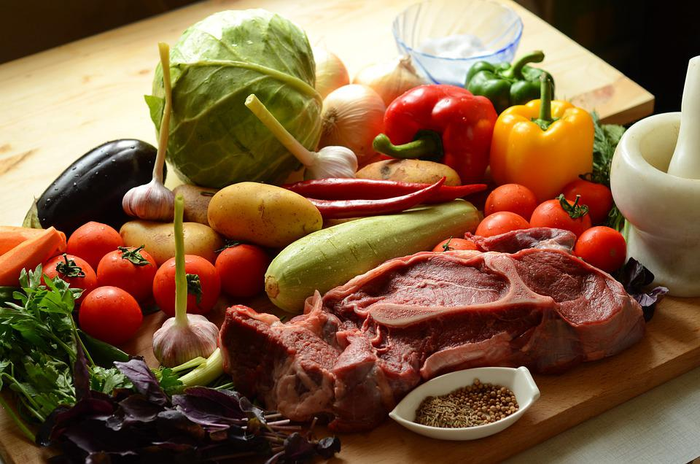Meat production is a significant source of greenhouse gasses and widespread adoption of a plant-based diet is key to achieving the United Nations 2030 Sustainable Development Goals. A study publishing June 16th in PLOS Sustainability and Transformation by Maijaliisa Erkkola at the University of Helsinki, Finland, and colleagues suggests that while consumers may have an attitudinal openness to shifting toward a plant-based diet, their food purchases reflect a strong preference for red meat.

Credit: Grigorijkalyuzhnyj, Pixabay (CC0, https://creativecommons.org/publicdomain/zero/1.0/)
Meat production is a significant source of greenhouse gasses and widespread adoption of a plant-based diet is key to achieving the United Nations 2030 Sustainable Development Goals. A study publishing June 16th in PLOS Sustainability and Transformation by Maijaliisa Erkkola at the University of Helsinki, Finland, and colleagues suggests that while consumers may have an attitudinal openness to shifting toward a plant-based diet, their food purchases reflect a strong preference for red meat.
Environmental advocates have pushed for a reduction in red meat consumption by transitioning to a plant-based diet. However, the attitudes and behavior toward meat consumption over time are not well-studied. To better understand the consumer behavior around meat and plant-based proteins, researchers analyzed individualized purchase data of 29,437 customers of the leading grocery store chain in Finland by accessing their loyalty card information from September 1, 2016 to December 31, 2018. Study participants completed an online survey, responding to questions on their demographics, family structure, income, education, and attitudes about eating meat. The researchers then analyzed participants’ purchasing patterns for red meat, poultry, fish, and plant-based foods.
The researchers found that while the majority of participants agreed that they should eat less red meat and processed meat for health reasons, these beliefs were not reflected in their purchasing trends. Red & processed meat accounted for 63% of protein purchases, and plant-based proteins accounted for only 8% of weekly purchases. Meat expenditures remained fairly stable during a two-year study period. Additionally, the study sample was not reflective of the general population, as highly educated people and women were overrepresented in the sample.
According to the authors, “Despite the media hype and accumulating evidence supporting sustainable protein sources, red meat preference and low regard for plant-based options are highlighted in purchase and consumption profiles. Regardless of the slow rise in the proportion of vegan, vegetarian, and red meat-free diets, the prevalence of different vegetarian diets remains modest in Finland.”
Erkkola adds, “Red meat seems to be the most commonly purchased protein source, but our study still pointed towards richer diversity in customer preferences. Low income does not appear to be a barrier to buying more sustainable alternatives, as there is a wide price range within all protein sources.”
############
In your coverage, please use this URL to provide access to the freely available article in PLOS Sustainability and Transformation: https://journals.plos.org/sustainabilitytransformation/article?id=10.1371/journal.pstr.0000015
Citation: Erkkola M, Kinnunen SM, Vepsäläinen HR, Meinilä JM, Uusitalo L, Konttinen H, et al. (2022) A slow road from meat dominance to more sustainable diets: An analysis of purchase preferences among Finnish loyalty-card holders. PLOS Sustain Transform 1(6): e0000015. https://doi.org/10.1371/journal.pstr.0000015
Author Countries: Finland
Funding: This research was funded by the Academy of Finland (#309157, HK), the Emil Aaltonen Foundation (JM), the Yrjö Jahnsson Foundation (JM), and the Finnish Food Research Foundation (HV). The funders had no role in study design, data collection and analysis, decision to publish, or preparation of the manuscript.
Journal
PLOS Sustainability and Transformation
DOI
10.1371/journal.pstr.0000015
Method of Research
Observational study
Subject of Research
People
COI Statement
Competing interests: We have read the journal’s policy and the authors of this manuscript have the following competing interests: HV has received a fee from the S Group. The collaboration included offering professional advice to influencers and writing a blog post with regard to interpretation of nutrition calculator in S Group’s mobile app. MF is a member of the S Group’s Advisory Board for Societal responsibility. The membership is without any compensation. The authors declare no other relationships or activities that could appear to have influenced the present work.




